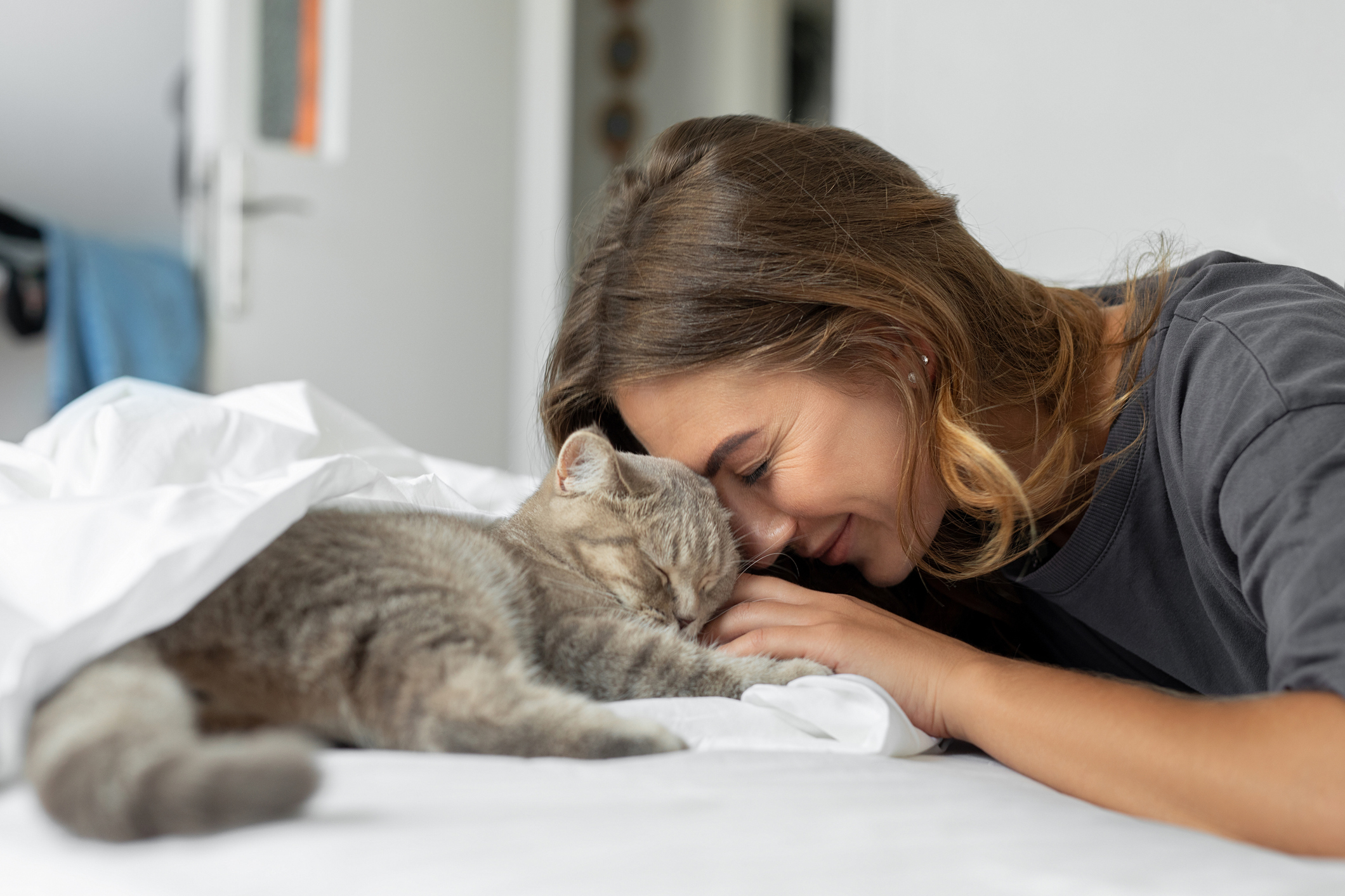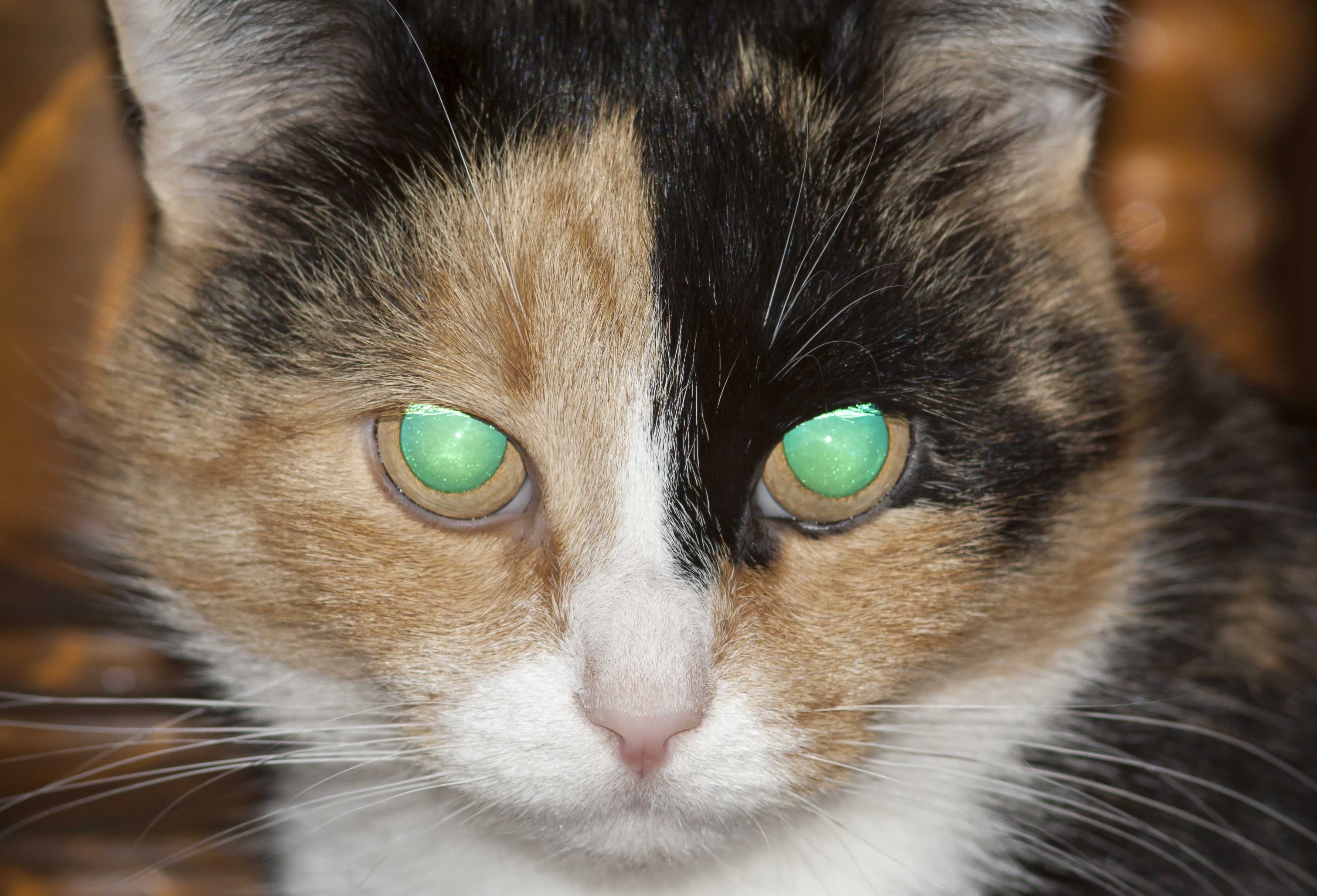
Does your cat nap throughout the day, only to lose their marbles at the crack of dawn? While a cat’s sleep cycle may seem sporadic, there’s a simple trick to understanding - and even changing their sleep schedule.
Spectacular Crepuscular Cats

Your cat’s tapetums help them hunt - or annoy their humans - under the cover of darkness.
Cats are neither diurnal or nocturnal. Instead, they are crepuscular. Crepuscular creatures are most active at dawn and dusk.
Dawn and dusk, when the sun is just below the horizon, create low-lighting conditions that are perfect for hunting. Wild cats can be inconspicuous to prey and avoid competing with nocturnal predators. Cats have around six to eight times more rods, or light receptors, in their eyes compared to humans.
Cats also have tapetums, reflective layers at the back of each eye, that amplify low light, helping them see well in the dark. Your cat’s tapetums are what can make their eyes appear to glow in the dark, especially in flash photos.
Your cat’s innate crepuscular tendencies are likely why your cat may get the zoomies a few hours before bedtime. This is also why your cat may start meowing for breakfast long before your alarm goes off.
How Many Hours Do Cats Sleep Per Day?
Cats sleep anywhere from a total of 16 to 20 hours per day. Kittens and senior cats tend to sleep more, while young adult cats sleep a little less.
Your cat is a polyphasic sleeper, meaning they don’t sleep for long stretches of time like we do. Instead, they sleep for around 60 to 80 minutes at a time between active periods. That means your cat takes at least 12 and as many as 20 naps throughout the day.
Your Cat’s Sleep And Activity Cycle
How does your cat decide when it’s time for a nap? They just follow their internal to-do list. It goe something like this: sleep, play, eat, groom, repeat.
Upon waking, you might notice that your cat goes from 0-100, ready to get into mischief. A wild cat would use this burst of energy to hunt their next meal. Usually, wild cats will hunt down small prey and eat several times throughout the day, and our domestic cats are the same, preferring to graze on their food rather than scarf down large meals.
After eating, most cats groom themselves. Grooming serves the purpose of removing food particles and keeping the fur clean, but it’s also a soothing activity that helps your cat doze off again.
How To Get Your Cat To Sleep Through The Night
If your cat keeps you up at night, you can modify their activity and sleep cycle to mimic yours.
For cats that become active at dawn, you can use blackout curtains on your windows to help prevent that early light from shining through.
You can simulate the hunt part of your cat’s activity cycle to help your cat wind down before bed. Play with your cat for about fifteen minutes before bedtime, then serve a small meal just before you’d like your cat to settle down for the night.
Your cat will likely still wake up a few times during the night, but you may be able to keep them from waking you by scattering soft, quiet toys that they can play with if they feel the urge to “hunt.”
One common myth about cats is that they find it so unusual when we sleep for as much as eight hours at a time - and that they wake us up throughout the night to make sure we’re still alive. Thankfully, there’s no solid evidence that this is true, and it’s more likely that your cat wants you to wake up to play and eat.
If your cat is insistent on completing the “eat” part of their cycle throughout the night, you can try using a puzzle feeder or automatic cat feeder.
When Your Cat Sleeps More Than Usual
It’s normal to notice changes in your cat’s activity level and sleep schedule throughout their lifetime.
Kittens might seem a little extra sleepy during growth spurts. They will likely sleep less as they grow into young adult cats.
Changes in your cat’s feeding schedule, daylight savings, and seasonal changes can all affect your cat’s sleeping habits.
Senior cats tend to sleep a bit more as they get older, but excessive sleeping should not be dismissed as normal signs of aging and slowing down. Also note, nighttime wakefulness and vocalization is a common symptom of feline cognitive dysfunction in senior cats.
If your cat of any age is suddenly sleeping more than usual, it could be a sign that they’re feeling unwell. Often, cats do not show obvious signs of being sick or in pain, and unexplained symptoms should be checked out by your veterinarian as soon as possible.






































